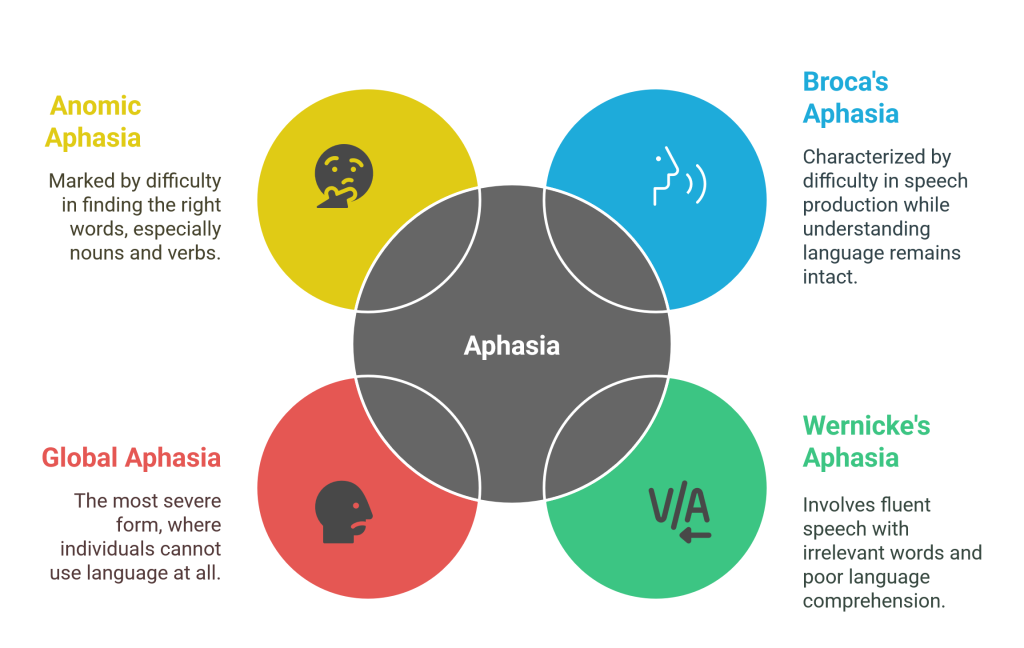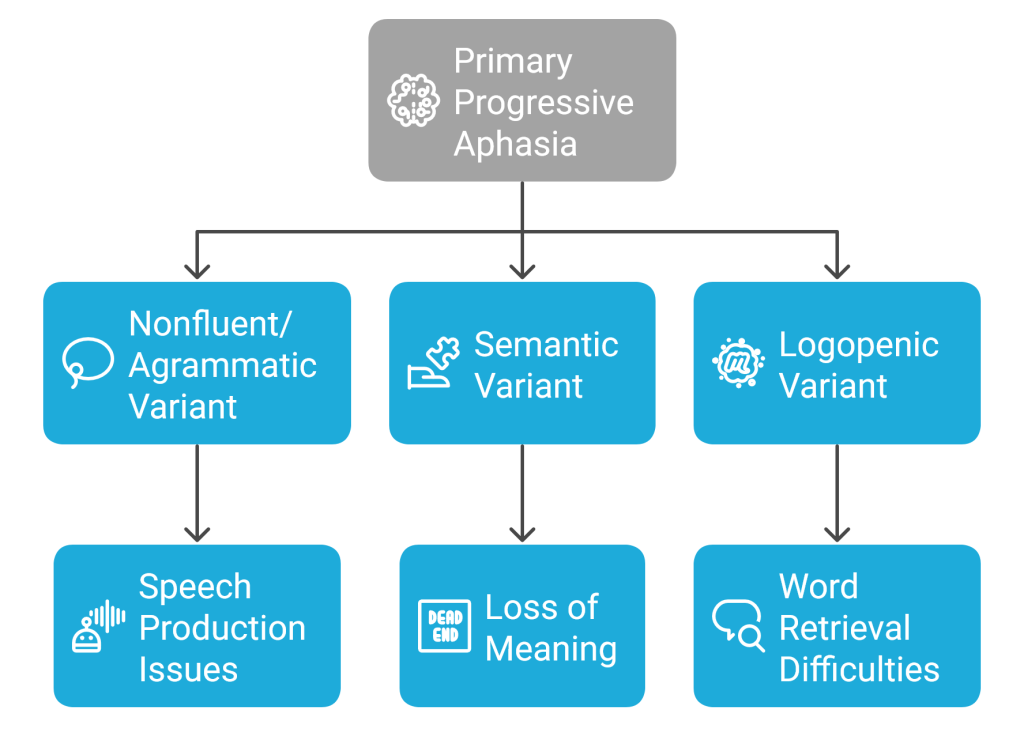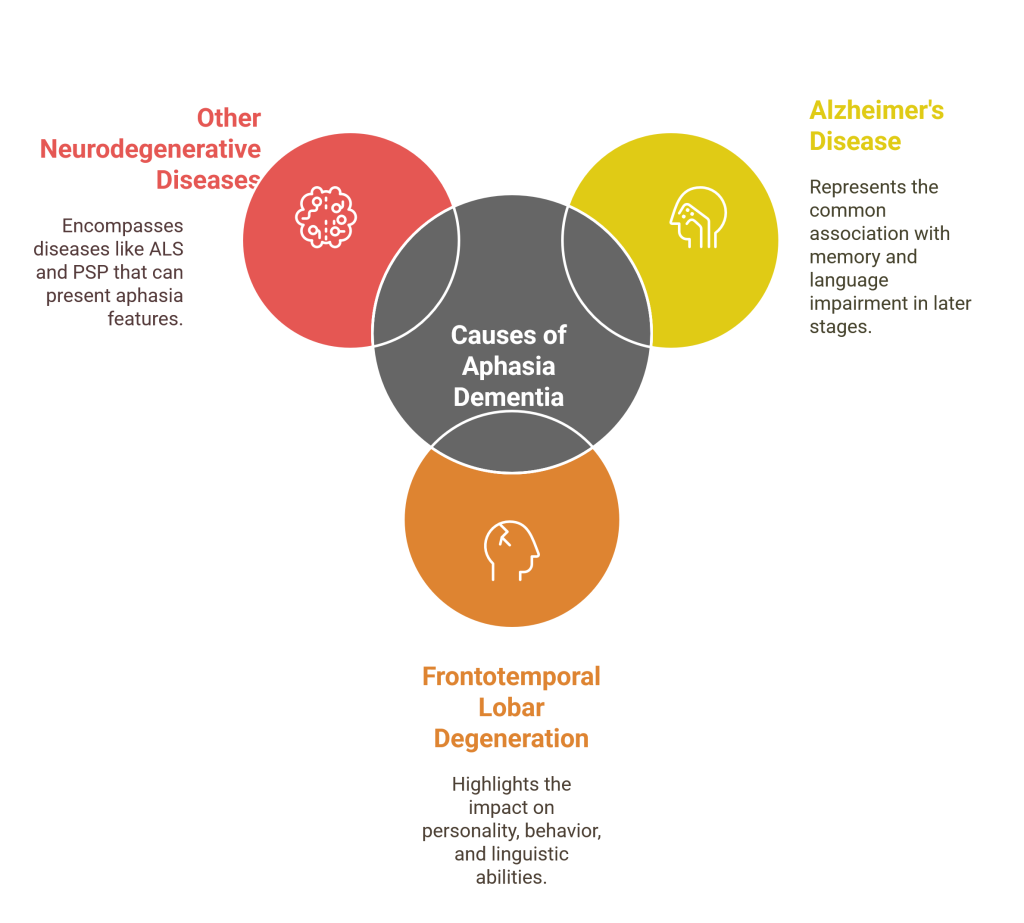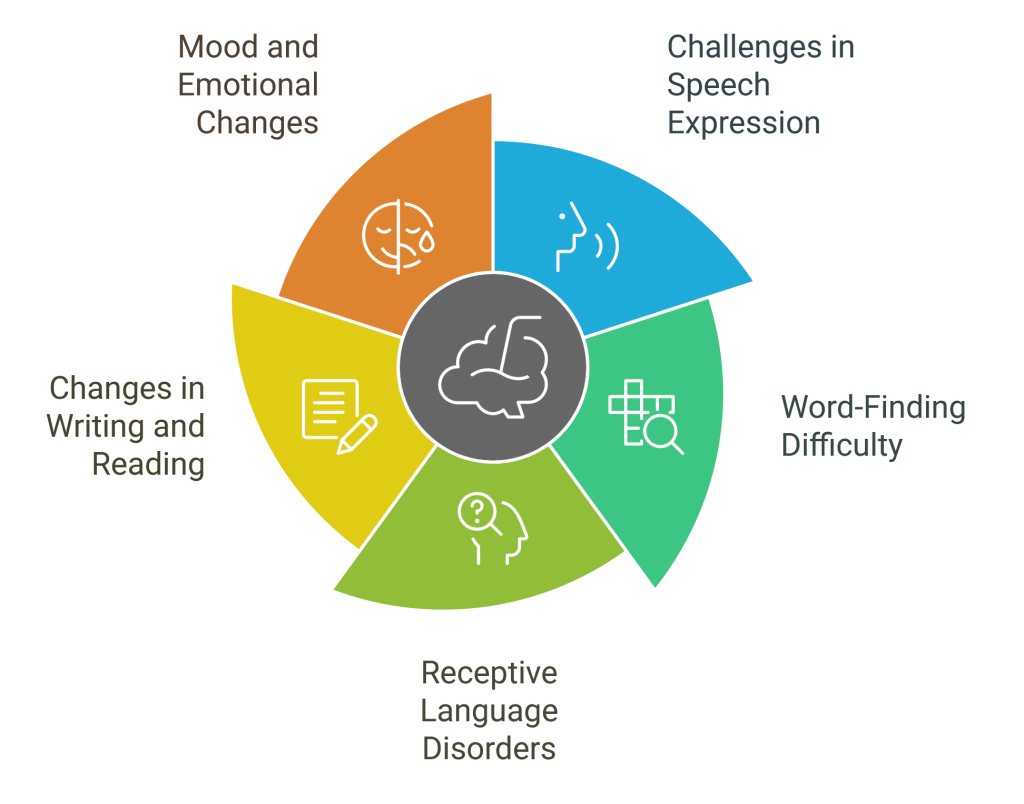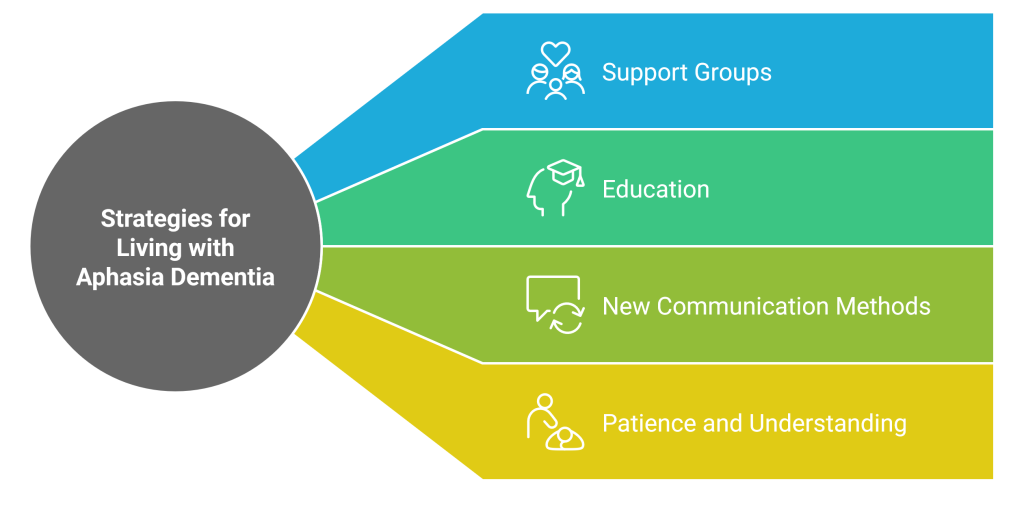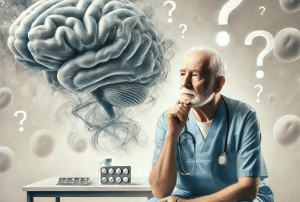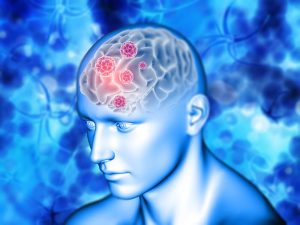Aphasia Dementia is a neurological disorder that influences an individual’s language abilities and cognitive functionality, leaving them struggling to express themselves. In comprehending this, caregivers pose challenges in understanding their needs and maintaining meaningful interactions.
It is where memory care facilities come in and provide specialized support to loved ones. The care facilities understand your loved one’s needs and offer supportive care that enhances the quality of life.
Through this blog post, we’ll discuss the complexity of aphasia dementia, the causes behind this disease, types of the disease, symptoms, diagnosis, treatment, memory care, and its effects on the patient and the family.
Understanding Aphasia
Aphasia is a neurological disorder caused by damage to the brain areas responsible for language. It causes difficulties in speaking, writing, reading, or communicating orally. Generally, its common causes include brain injury, stroke, tumors, and degenerative diseases. There are several types of aphasia:
- Aphasia due to Broca’s: It is characterized by speech production difficulties. An individual understands the language but struggles to articulate thoughts into words.
- Wernicke’s Aphasia: In this condition, the patient has trouble understanding language. Such a patient can talk fluently but include irrelevant words in communication.
- Global Aphasia: This is the most severe form of Aphasia, in which an individual is unable to use language at all. They can’t express or receive thoughts.
- Anomic Aphasia: The aphasics have difficulty finding the right words to voice one’s intention, for example, nouns and verbs, but are generally able to use grammar and comprehend.
What is Dementia?
Dementia represents a series of symptoms, causing the breakdown of memory, thought processes, and social or mental aspects that prevent living.
Dementia is a syndrome that includes Alzheimer’s dementia, vascular dementia, Lewy body dementia, and many others involving cognitive decline, behavior alteration, and deficits in handling daily tasks.
This type of condition often needs a special memory care facility that is usually provided mostly in residential assisted living, where trained staff offer the necessary support for individuals affected by dementia.
Primary Progressive Aphasia (PPA)
Primary progressive aphasia is a dementia type affecting mainly language capabilities. Unlike other dementias that start with the impairment of memory, PPA begins with an impairment of language capabilities. PPA has been divided into three variants:
- Nonfluent/Agrammatic Variant PPA: This variant is characterized by problems with producing speech and grammatical problems. They might utter short sentences and have difficulty phrasing their thoughts.
- Semantic variant PPA: In this condition, the patient will lose meaning or their ability to understand and produce meaningful language. Some patients may lose the ability to name objects and give meanings to words.
- Logopenic Variant PPA: Patients suffering from this condition have difficulty in retrieving words as well as in repetition of sentences. He/She uses long, winding sentences but is unable to find the right words.
Causes of Aphasia Dementia
A neurodegenerative disease is the main cause of aphasia dementia, specifically PPA. The cause is not well known in most cases, but several factors are known to help condition progression:
- Alzheimer’s Disease: This is the most common disease described with memory loss, but Alzheimer’s can also affect language at later stages of the disease.
- Frontotemporal Lobar Degeneration: It refers to a group of brain disorders that, apart from affecting personalities and behaviors, also influence the brain’s linguistic ability by attacking the frontal and temporal lobes.
- Other Neurodegenerative Diseases: There exist other diseases that present aphasia features, for instance, amyotrophic lateral sclerosis (ALS) or progressive supranuclear palsy (PSP).
Symptoms of Aphasia Dementia
The symptoms of aphasia dementia again depend on the type of aphasia and the rate at which the individual’s cognitive abilities deteriorate. General symptoms include the following:
- Challenges in Speech Expression: Aphasic patients show difficulties in speaking. They may only communicate with short phrases or incomplete thoughts.
- Word-Finding Difficulty: They cannot remember the names of objects and common words.
- Receptive Language Disorders: These individuals may not fully understand the language being used in conversations or may struggle to follow instructions.
- Changes in Writing and Reading: Written communication might become hard, with fewer words from the individual or possibly errors.
- Mood and Emotional Changes: The common signs of this condition include mood swings, anger, personality changes, and fluctuations in emotions.
Diagnosis of Aphasia Dementia
Initial assessment of aphasia dementia will be made by appropriate professionals, including neurologists, speech-language pathologists, and neuropsychologists in future diagnostics. The major procedures used in diagnosis include the following:
- Clinical Evaluation: A full medical history is used to analyze language abilities.
- Neuroimaging: These include scans on the brain in order to find out any structural changes related to aphasia and dementia- MRI or CT scan.
- Cognition Testing: standardized tests comprise every domain of a language, memory, and cognitive capacity, which serves as the basis for distinguishing PPA from other types of dementia.
Treatment Options
Currently, no cure exists for aphasia dementia. Still, several interventions can alleviate the symptoms and contribute to improving quality of life:
- Speech and Language Therapy: Depending on the involvement, some patients with sufficient linguistic skills can follow speech and language therapy and learn a number of communication strategies for effective communication for as long as possible, even with some residual language abilities.
- Cognitive Rehabilitation: Therapy that calls a person’s attention to one’s cognitive skills can also help someone adapt to his or her communication challenges. Read our blog to unravel the complexities of Dementia patients.
- Medication: There is no drug that is specific for the management of PPA, but occasionally some antidepressants or anti-anxiety drugs may be prescribed to manage the symptoms of depression or anxiety.
- Supportive Care: It is always useful to inform the family members and caregivers about the condition so that better memory care and communication strategies can be developed to create a positive environment. You can also consider assisted living communities to make the lives of dementia patients much easier.
- Assistive Technology: Communication apps and devices assist individuals with significant impairments in making their thoughts known.
Living with Aphasia Dementia
Aphasia dementia also leaves its mark on the individual, his or her family, and caregivers. The person’s inability to communicate leaves them feeling isolated and frustrated. However, being educated about the condition and seeking appropriate support can greatly enhance the quality of life. Here are some strategies:
- Support Groups: Meeting with others who share similar circumstances can offer emotional support and practical advice.
- Education: Education concerning Aphasia and dementia may empower the patient as much as the family, building their capacity to handle the complexities of this condition.
- Developing New Communication Methods: Develop new modes of communication, like gestures, writing, or any means that will help in understanding.
- Patience and Understanding: Concerned caregivers and family members should patiently allow an individual’s expression without putting pressure.
Conclusion
Aphasia dementia, especially the form of primary progressive aphasia, is a complex condition that has a serious impact on the way patients communicate. As yet, there is no cure for the said condition. However, understanding how and why it affects individuals, as well as what treatments are available, will help individuals and their families cope with the difficult journey. People with aphasia dementia can lead a life of dignity with appropriate memory care, education, and therapeutic intervention. Read this guide to seek ways to provide Dementia care and support in your own home.
Experience the Difference at Shore Pines! Schedule a personal tour today and discover the compassionate care that awaits you or your loved one.


